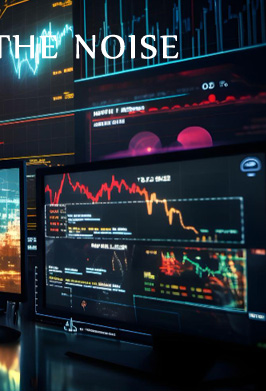|
|
What is Market Cap?
Market Cap that shorts Market Capitalization refers to the total value of all shares or stocks of a company. The Market Cap is calculated as the current share price multiplied by the number of shares outstanding. Knowing a company's market cap acts as a comparison of one company's relative size versus another, accordingly investors commonly use Market Cap value to rank companies and compare their relative sizes in a particular industry or sector.
Based on Market Cap, stocks are classified into four categories.
|
| |
|
|
| |
|
Large-Cap stocks, also referred to as blue chips refer to companies that have a Market Capitalization of $10 billion or more. These companies can boast long track records of success. Some examples would be Tesla, Google, Amazon, Microsoft, Apple, IBM, Meta, etc. The return on long-term investment in large-cap stocks might not be as quick or impressive as on small or mid-cap stocks, but these megacorps pay out dividends when possible, and the stock price fluctuations are historically less volatile. Day Trading with Large-Cap stocks in general is less profitable than with mid- or small caps because their day-to-day volatility is much lower. At times, you still can profit from Large-Caps' price movements when due to favorable news or business events the stock spikes within short period of time.
|
| |
|
|
| |
|
Mid-Cap stocks include companies whose Market Cap ranges from $2 billion to $10 billion. Soaring mid-cap stocks (beside to such small-cap stocks) are considered growth stocks because they have proven their credibility and operate in industries expected to grow. However because they have less of a track record, the risk is commensurately higher compared to large-cap stocks but lower than small-cap stocks. In leading industries analysts and investors expect mid-caps to be expanding and their growth potential can be attractive to investors. A vast array of Mid-Cap stocks can offer enough volume and liquidity for Day Traders but they still should consider only the most heavily traded and liquid Mid-Caps as best candidates, if they are about to have the best chance of producing profit. The risk of Intraday Trading with Mid-Cap stocks is proportionately higher compared to large caps but lower than small caps.
|
| |

Battle Inflation
Monster

Create From-Home
Career

Act for a Luxury Life
|
| |
|
Small-Cap stocks are companies that are worth $300 million to $2 billion. Top performer Small-Caps are definitely categorized as growth stocks, and the great majority of Day Trading Portfolios primarily include them. They are defined as high-risk but high-return stocks, as these companies are relatively young or listed in one of the niche sectors, whereas they are traded in the growth stage. Small-Cap stocks are more volatile and accordingly they can entail lower trading volume and liquidity compared to larger companies but in face of the inherent risk, Small Caps can offer excellent growth opportunities.
|
| |

No Grueling Analysis
|

Massive Profit Rate
|

Lucrative Career
|
|
| |
Micro-Cap Stocks have a worth lower than $300 million, and if they trade for less than $5 per share they are called penny stocks often with young firms behind them. Micro-Caps' potential for rise and decline is of similar nature. They are considered very risky investment but Day Traders are still often keen on making a fortune with them, therefore they require very extensive and meticulous research before investment.
We at BNA Day Trade US stocks generally with a Market Cap of 500 million to $5 billion but this might vary upon our Daily Stock Picking Software, SentiTrade's results.
|
| |
|
|
Are you anxious to staring into our Day Trading Room where we show you our daily batch of US Stocks found as the best candidates for day Trading? Don't hesitate to sign up for our newsletter with real time updates on exact entry and exit points we use for our Day Trading portfolio.
|

14-Day FREE
Trial
NO Credit Card Needed
|
|
| |
|
|
| © BullishNewsAlerts 2022 - bullishnewsalerts.com
- All rights reserved |
| |
 WHAT IS MARKET CAP
WHAT IS MARKET CAP






 A COMPANY'S VALUE
A COMPANY'S VALUE





